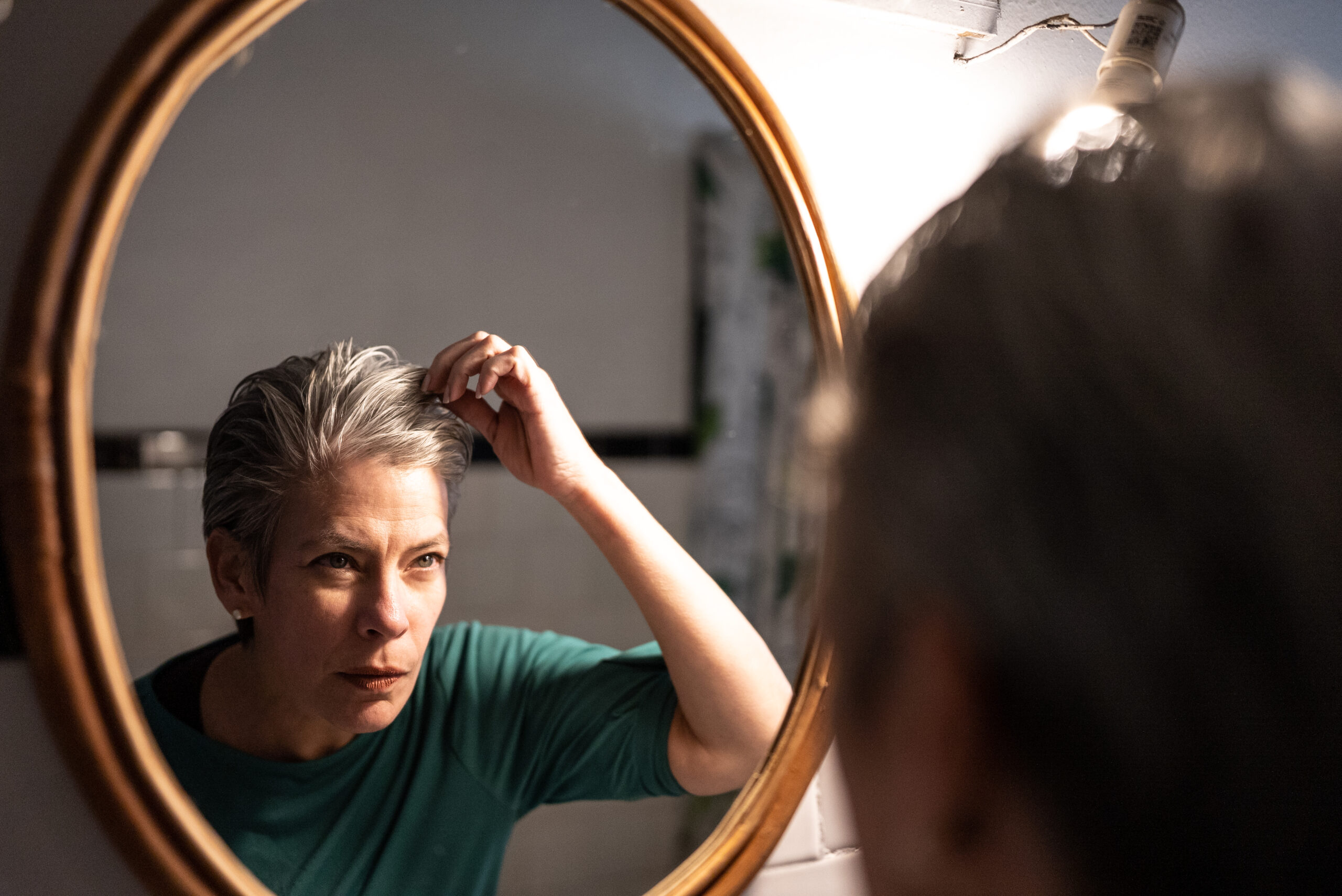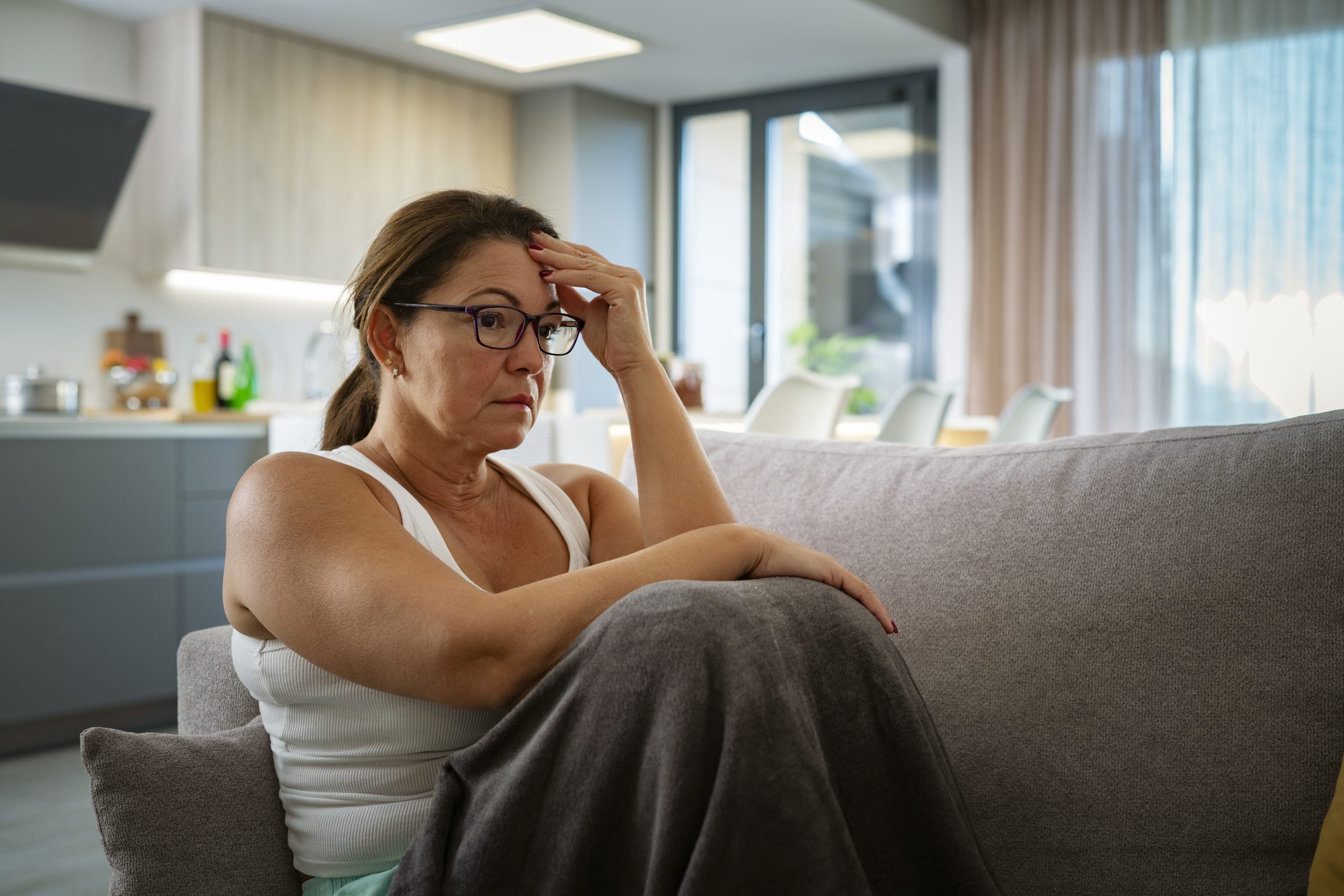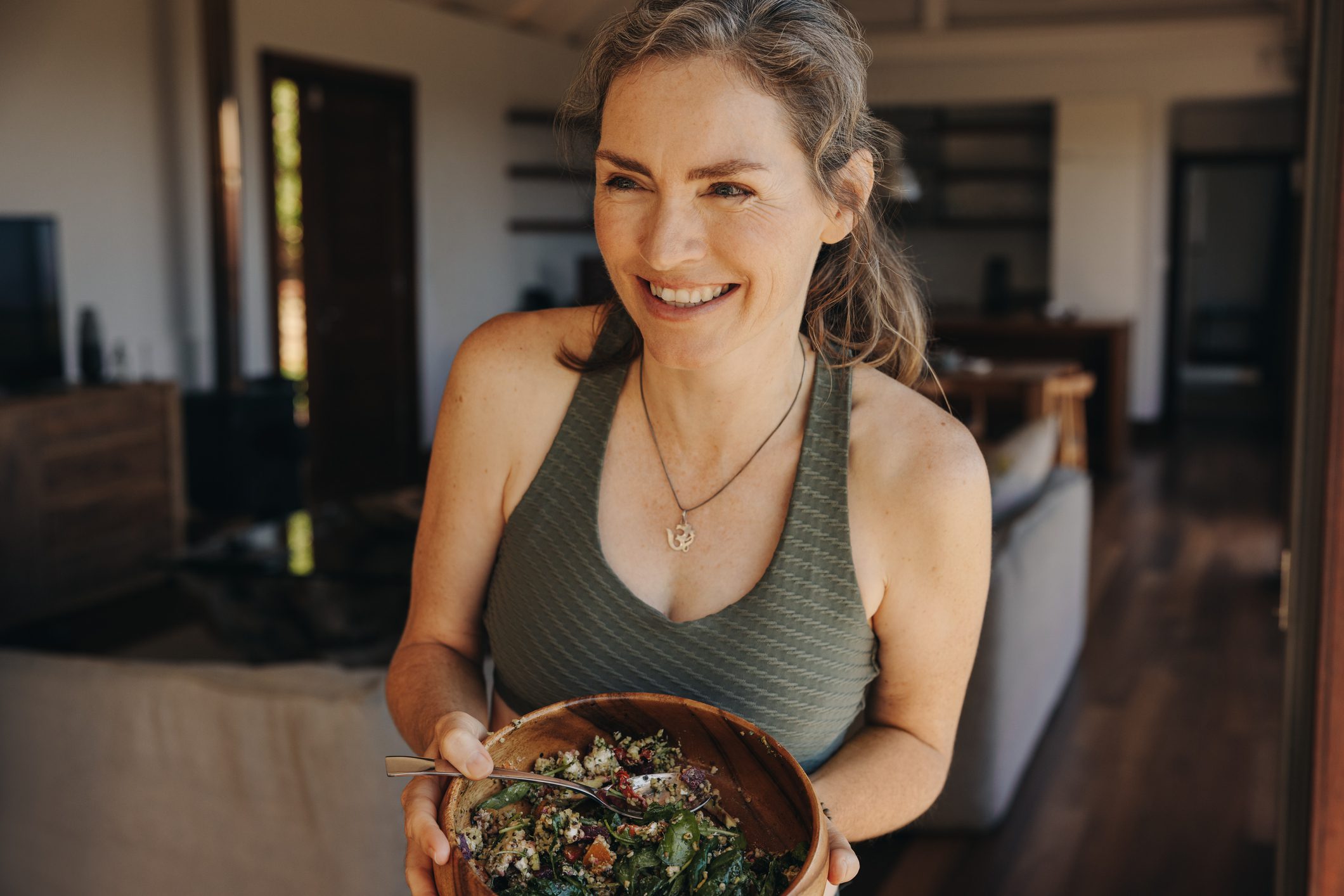The truth is, most women aren’t getting nearly enough protein that they need, especially as they age.1 Unfortunately, that’s exactly when we need to ramp up our intake.
Often, your body tries to let you know it needs more protein by sending off warning signs. Bodies can’t exactly scream, “Give me a grass-fed steak, pronto!” though, can they? It can be easy to ignore warning signs when you don’t know they’re related, chalking symptoms up to general aging or other health issues.
I’m here to tell you that you absolutely don’t have to live with your symptoms. You can get enough protein in your diet to ditch them for good. I’m going to let you know how to spot those symptoms in the first place.
Why You Need More Protein as You Get Older
But first, let’s look at why protein is such a critical part of your diet as you age:
- Muscle mass decreases with age. Starting as early as your 30s (though it’s more common closer to your 50s or 60s), a gradual deterioration of muscle mass can begin. The average person can lose 3-8% of their muscle mass per decade after 30, accelerating after 60.2 That loss of strength is what can eventually weaken you, potentially impacting your mobility and your ability to do the things you love. What can help build and maintain muscle? You’ve got it—protein.
- Protein can help combat chronic inflammation. Chronic inflammation can lead to or exacerbate serious conditions including type 2 diabetes, heart disease, and asthma. But researchers found that increasing protein intake as you age can help combat chronic inflammation.3
- Improves functionality: Age-related mobility issues aren’t only about pure strength. Your functionality—like your grip strength or the pace of your gait, for instance—can protect you from falls, and allow you to keep doing the activity and exercises that maintain your strength. That frailty is more common in women, and unfortunately, it’s also a strong predictor of mortality—in a study among patients receiving acute care, the more frail were at a higher risk for readmission and mortality.4
- Improves bone strength: Bone strength is another factor in functionality. Like muscle mass, it can decrease with age. Luckily, researchers found that protein can help boost functional integrity along with strength, allowing you to stay healthy and active for longer.5
Adding Complete Bone Support supports bone strength and mineralization as you get older, providing the vitamins, minerals, and other nutrients necessary to stave off frailty.
5 Warning Signs for Protein Deficiency
Now that you know why protein is so important, let’s check out some of the warning signs your body gives you when it really needs more.
1. Your cravings won’t quit.
Protein fills you up—it’s as simple as that.6 It’s the most satiating nutrient, so when you eat by the plate with enough protein at every meal, you’re going to be satisfied until it’s time to eat again. (I recommend aiming for at least 100 grams a day).
Plus, when your plate doesn’t have enough protein, you might be trying to fill up with foods high in sneaky sugars. Over time, consuming enough sugar can inhibit your hunger hormone, leptin, which plays a role in telling your brain that you’re full. When it’s not functioning well, your satiety signals are missed and you’ll crave more food.
If your stomach is still rumbling right after lunch is over or you can’t get over a 3 pm need for a cookie, it could be a sign that your plate needs more protein.
2. Your hair, nails, and skin aren’t what they used to be.
Protein is made up of long chains of amino acids, and your hair, nails, and skin need those amino acids to appear healthy and strong. But they play other vital roles in your body, too, like boosting your immune health and keeping your muscles and organs functioning.
If your body isn’t taking in enough protein, it’s going to prioritize other more crucial amino-acid jobs first, leaving your hair, skin, or nails without the protein they need to stay vibrant.
Brittle, cracked, or ridged nails, breaking hair, or red or flaky skin can all be signs that your body needs more protein. If this is one of the protein-deficient symptoms you’re noticing, give my Collagen Peptides Powder a try. It’s easy to add a scoop to just about anything and get the proteins that support proper skin health, hydration, and appearance—giving you the confident glow you’ve been missing.

3. You’re in pain after the gym.
Getting in a great workout is crucial for building up the muscle mass we all lose as we age—but just as important is making sure your muscles recover afterwards. Exercise, particularly weight-bearing workouts like pumping iron or doing push-ups, creates tiny tears in our muscles. When those tears repair themselves, your muscle is left stronger (and possibly bigger) than it was before.
If you don’t give your muscles adequate time to repair, they’ll never actually grow stronger, and you’re at a higher risk for injuries. And they simply can’t repair if you’re not feeding them with the protein they need to recover and grow.
4. You are taking forever to heal.
Got a scrape, a pulled muscle, or a cold that refuses to get better? It all comes back to those amino acids. They are critical for healing both muscle and skin wounds, as well as creating antibodies that bolster your immune system. If this goes on long enough, not only are those injuries going to keep bothering you, but it could lead to more inflammation—and we all know you want to avoid that.
If your body needs to focus on healing from an illness, injury, or surgery, you’re going to want to up your protein intake even more than your average, to at least 1 gram of protein per pound of ideal body weight. That will give your body enough protein to go about its regular business, plus do the healing it needs to do.
5. Your moods are all over the place.
Bear with me—I’m going to bring up amino acids again. They regulate the creation of the neurotransmitters that allow our brain cells to communicate. Without enough protein to make sufficient neurotransmitters like serotonin and dopamine, you can start to feel sad or anxious for no good reason.
Additionally, if you’re one of those people who feels pretty cranky when you’re hungry, filling up with protein can help make being ‘hangry’ a thing of your past.
How to Get the Protein You Need
Once you determine how much protein you need per day, you can work backwards towards your meal plan. Divide that number by three to figure out what to aim for with breakfast, lunch, and dinner (and see my recipes archive for plenty of options to work with).
And when you need an on-the-go protein you can swap for any meal, grab a Loaded Smoothie. Not only are they chock-full of protein thanks to my All-In-One Shake protein powder, they’re also super versatile. Stock your pantry and fridge with whole foods and fresh, seasonal ingredients so it’s easy to grab your favorites and create a smoothie that keeps you satiated until your next meal—and those nagging symptoms far away.
Not sure where to start with your loaded smoothies? I created the Loaded Smoothie Cookbook to give you over 60 recipes that you’ll love rotating through every morning.
References:
- Krok-Schoen JL, Archdeacon Price A, Luo M, Kelly OJ, Taylor CA. Low Dietary Protein Intakes and Associated Dietary Patterns and Functional Limitations in an Aging Population: A NHANES analysis. J Nutr Health Aging. 2019;23(4):338-347. doi:10.1007/s12603-019-1174-1
- Volpi E, Nazemi R, Fujita S. Muscle tissue changes with aging. Curr Opin Clin Nutr Metab Care. 2004;7(4):405-410. doi:10.1097/01.mco.0000134362.76653.b2
- Hruby, A., & Jacques, P. F. (2019). Dietary Protein and Changes in Biomarkers of Inflammation and Oxidative Stress in the Framingham Heart Study Offspring Cohort. Current Developments in Nutrition, 3(5). https://doi.org/May
- Hao, Q., Zhou, L., Dong, B., Yang, M., Dong, B., & Weil, Y. (2019). The role of frailty in predicting mortality and readmission in older adults in acute care wards: a prospective study. Scientific reports, 9(1), 1207. https://doi.org/10.1038/s41598-018-38072-7
- Hruby, A., Sahni, S., Bolster, D., & Jacques, P. F. (2018). Protein Intake and Functional Integrity in Aging: The Framingham Heart Study Offspring. The Journals of Gerontology, 75(1). https://doi.org/September 24
- Arne Astrup, The satiating power of protein—a key to obesity prevention?, The American Journal of Clinical Nutrition, Volume 82, Issue 1, July 2005, Pages 1–2, https://doi.org/10.1093/ajcn/82.1.1






